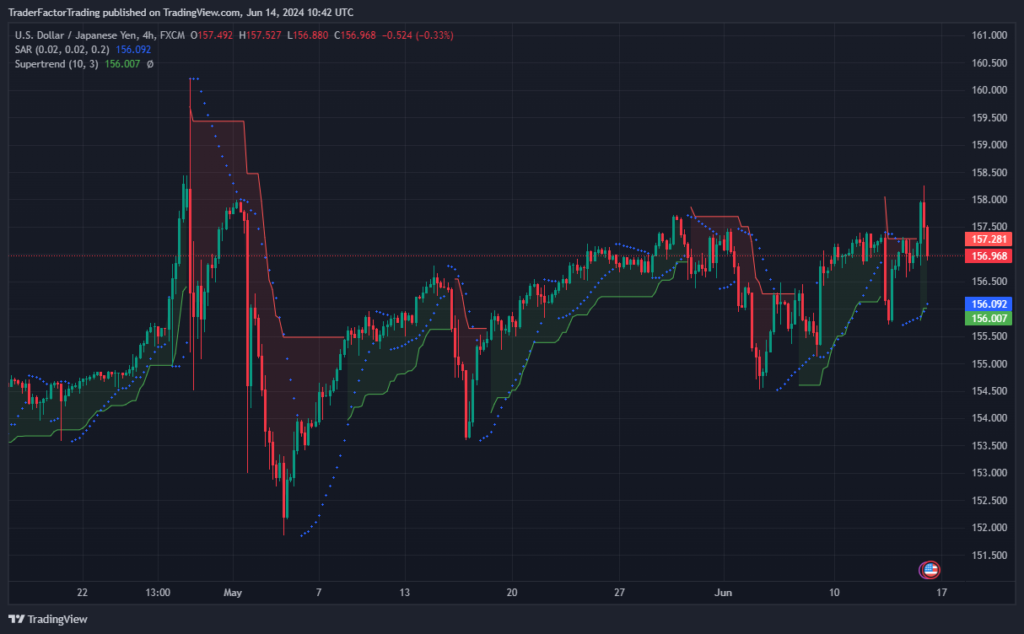The Bank of Japan (BOJ) has announced plans to reduce its government bond purchases, signaling a move towards monetary tightening. However, despite this typically supportive action for the yen, the Japanese currency weakened on Friday due to a lack of specific details on the bond plans.
Bank of Japan Monetary Policy Meeting Highlights
At the recent Monetary Policy Meeting (MPM), the Policy Board of the Bank of Japan decided to maintain the uncollateralized overnight call rate at around 0 to 0.1 percent. The BOJ will continue to purchase Japanese government bonds (JGBs), commercial paper, and corporate bonds in line with decisions made at the March 2024 MPM. Notably, the BOJ decided by an 8-1 majority vote to reduce its JGB purchase amounts, aiming to allow long-term interest rates to be formed more freely in financial markets. The detailed plan for this reduction will be decided at the next MPM, based on feedback from market participants.
Japan’s Economic Overview
Japan’s economy has shown moderate recovery with some weaknesses evident in specific sectors. Key observations include:
- Exports and Industrial Production: Both have remained more or less flat, affected by production and shipment suspensions at some automakers.
- Corporate Profits and Business Investment: Corporate profits are improving, and business fixed investment is on a moderate increasing trend.
- Employment and Income: The employment and income situation has seen moderate improvement.
- Private Consumption: Resilient, despite price rises and the impact on automobile sales due to shipment suspensions.
- Housing and Public Investment: Housing investment remains relatively weak, while public investment has been stable.
- Financial Conditions: Accommodative overall.
- Consumer Prices: The year-on-year increase in the consumer price index (CPI, excluding fresh food) has been in the range of 2.0-2.5 percent, fueled by rising services prices and wage increases.
Future Economic Expectations
Japan’s economy is expected to grow at a pace above its potential growth rate, supported by moderate overseas economic growth and a virtuous cycle from income to spending. Factors such as accommodative financial conditions will continue to play a role. The CPI is projected to rise through fiscal 2025 due to waning effects of previous government economic measures and improving underlying inflation driven by a better output gap and rising medium- to long-term inflation expectations.
Potential Risks
Several risks could impact Japan’s economic outlook, including:
- Developments in overseas economic activity and commodity prices.
- Domestic firms’ wage- and price-setting behavior.
- Financial and foreign exchange market developments and their impact on Japan’s economic activity.
BOJ’s Plan to Trim Bond Purchases and Potential Rate Hike
The BOJ announced plans to trim its extensive bond purchases and will provide a detailed plan next month on reducing its nearly $5 trillion balance sheet. Governor Kazuo Ueda indicated that interest rate hikes might be considered in July if yen weakness continues to push up import costs, reflecting a hawkish stance despite recent economic weakness.
Impact on Financial Markets
The immediate impact of the BOJ’s statement was seen in the currency markets. The USD/JPY pair reversed gains, trading near 157.00 amid broad risk aversion. While the BOJ’s decision to hold policy settings unchanged initially weakened the yen, the overall market sentiment remains cautious. The Japanese yen has also been impacted by the US Federal Reserve’s hawkish hold, as the Fed maintained its lending rate range at 5.25%–5.50%.
USDJPY 4-hour Chart

By providing a detailed look at the BOJ’s recent monetary statement and its implications, financial analysts and traders can better understand the potential impacts on the economy and financial markets. This comprehensive analysis helps stakeholders stay informed and make data-driven decisions.
Disclaimer:
All information has been prepared by TraderFactor or partners. The information does not contain a record of TraderFactor or partner’s prices or an offer of or solicitation for a transaction in any financial instrument. No representation or warranty is given as to the accuracy or completeness of this information. Any material provided does not have regard to the specific investment objective and financial situation of any person who may read it. Past performance is not a reliable indicator of future performance.


















